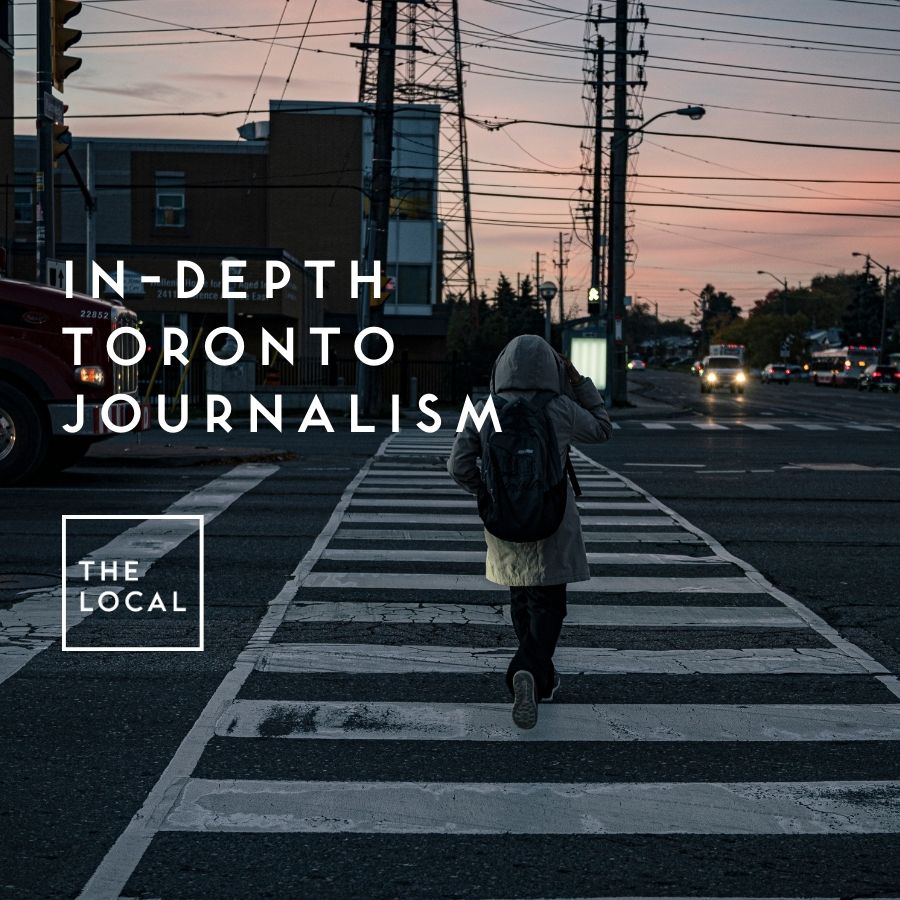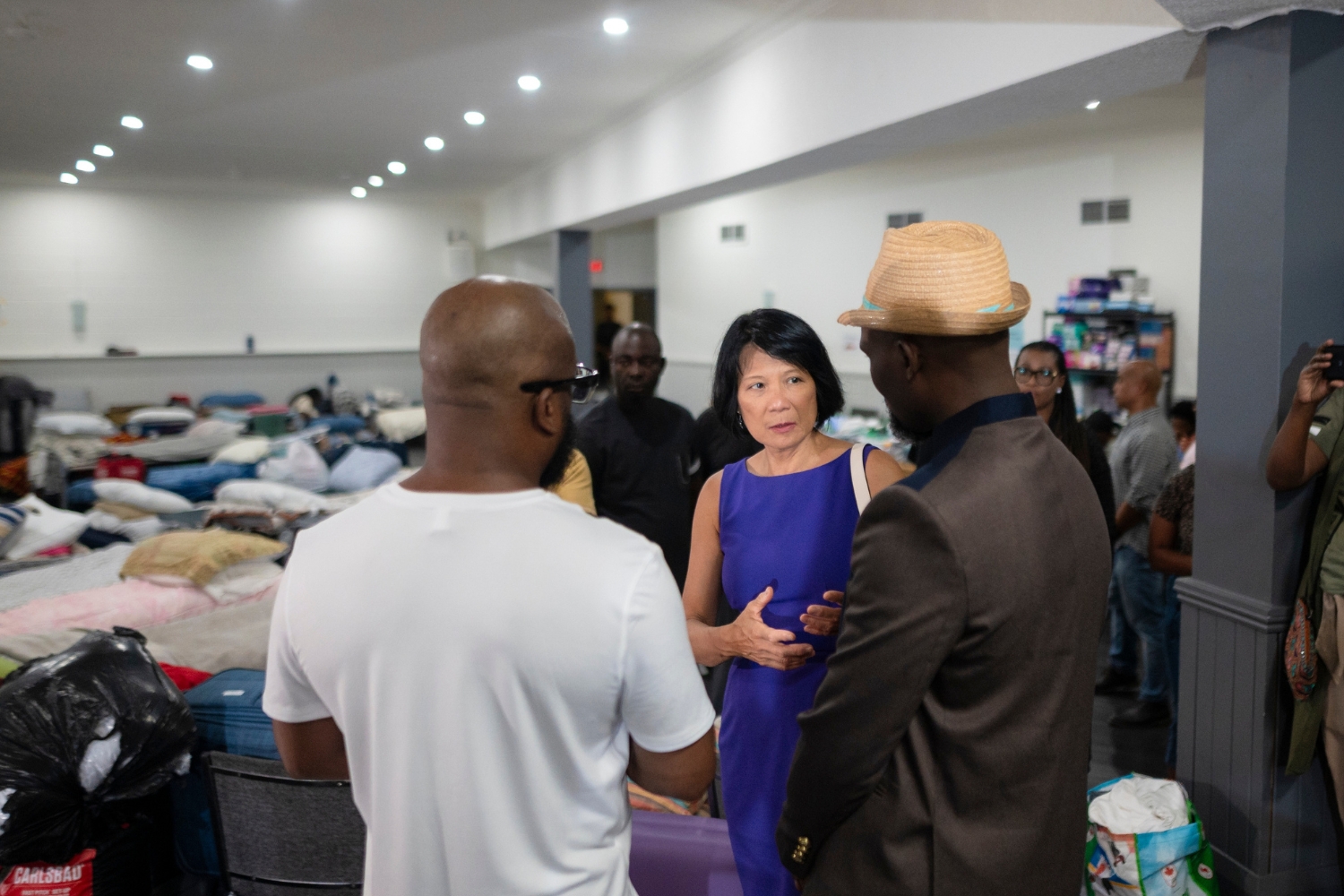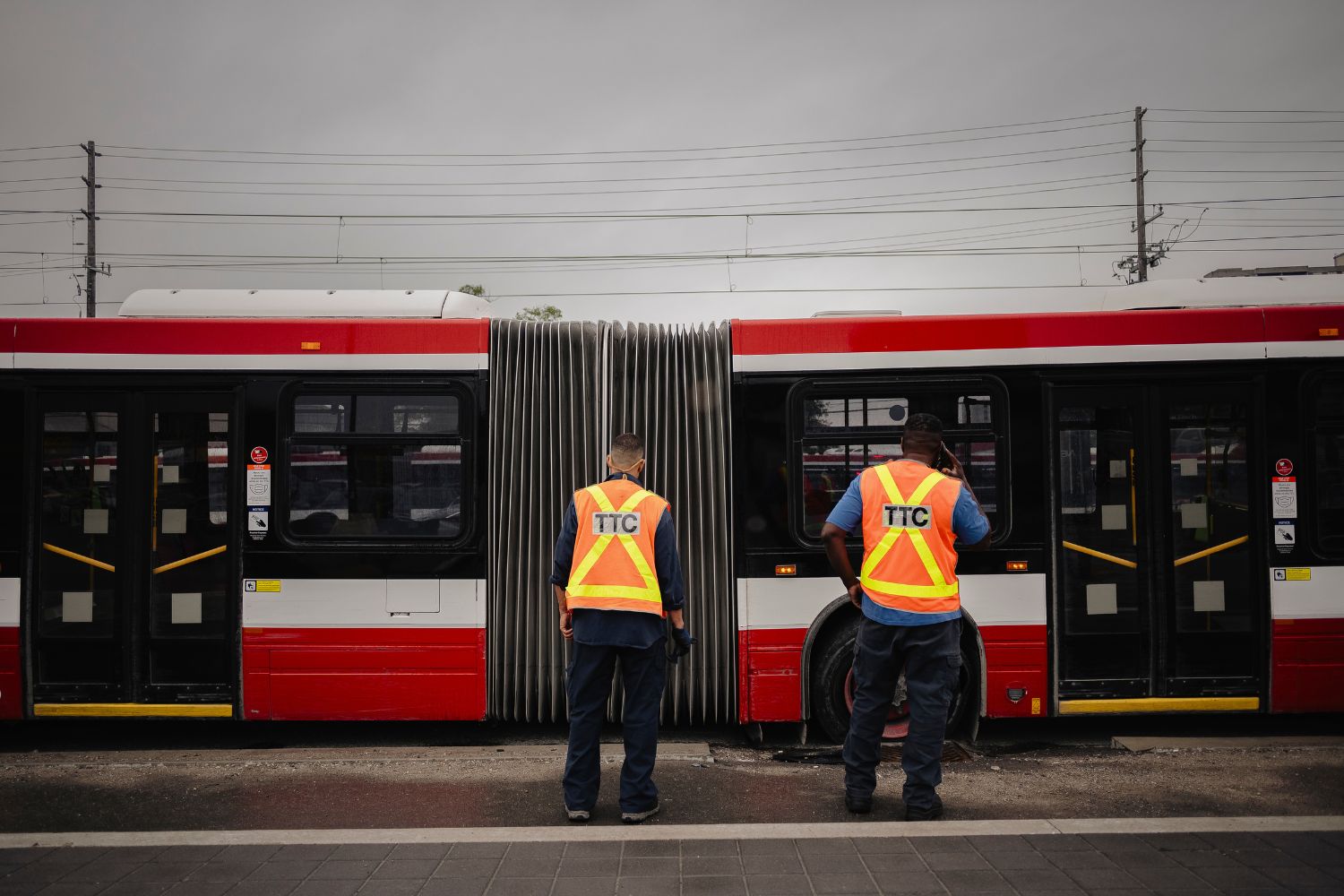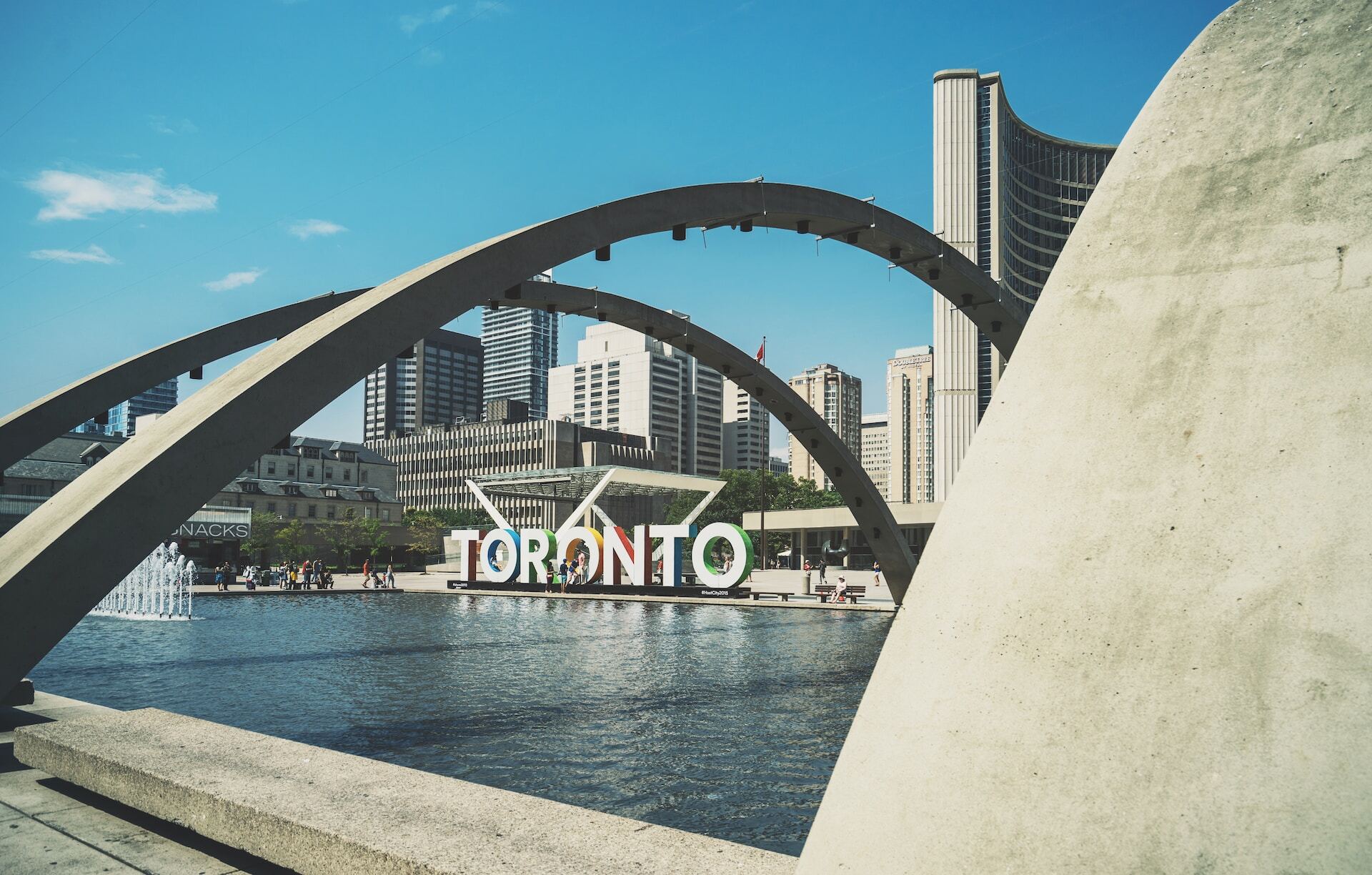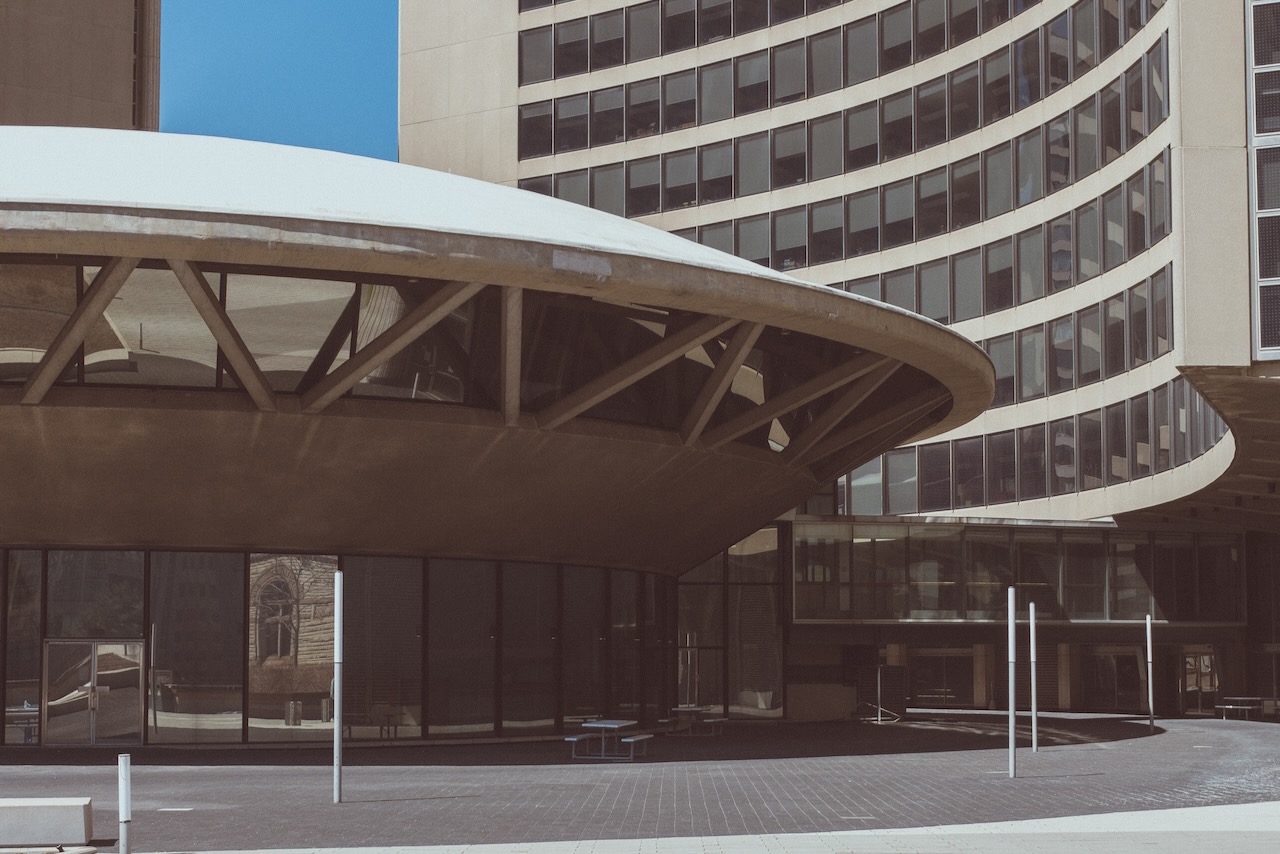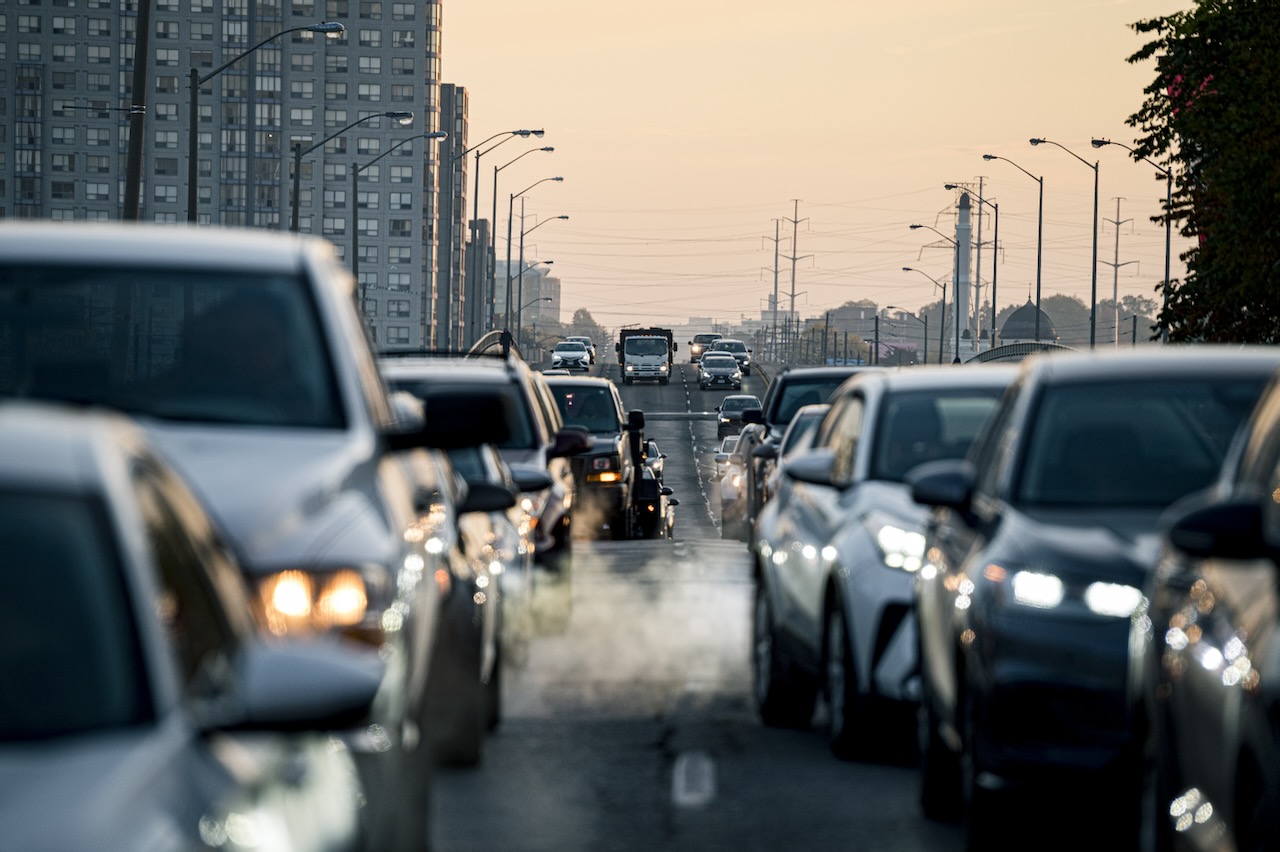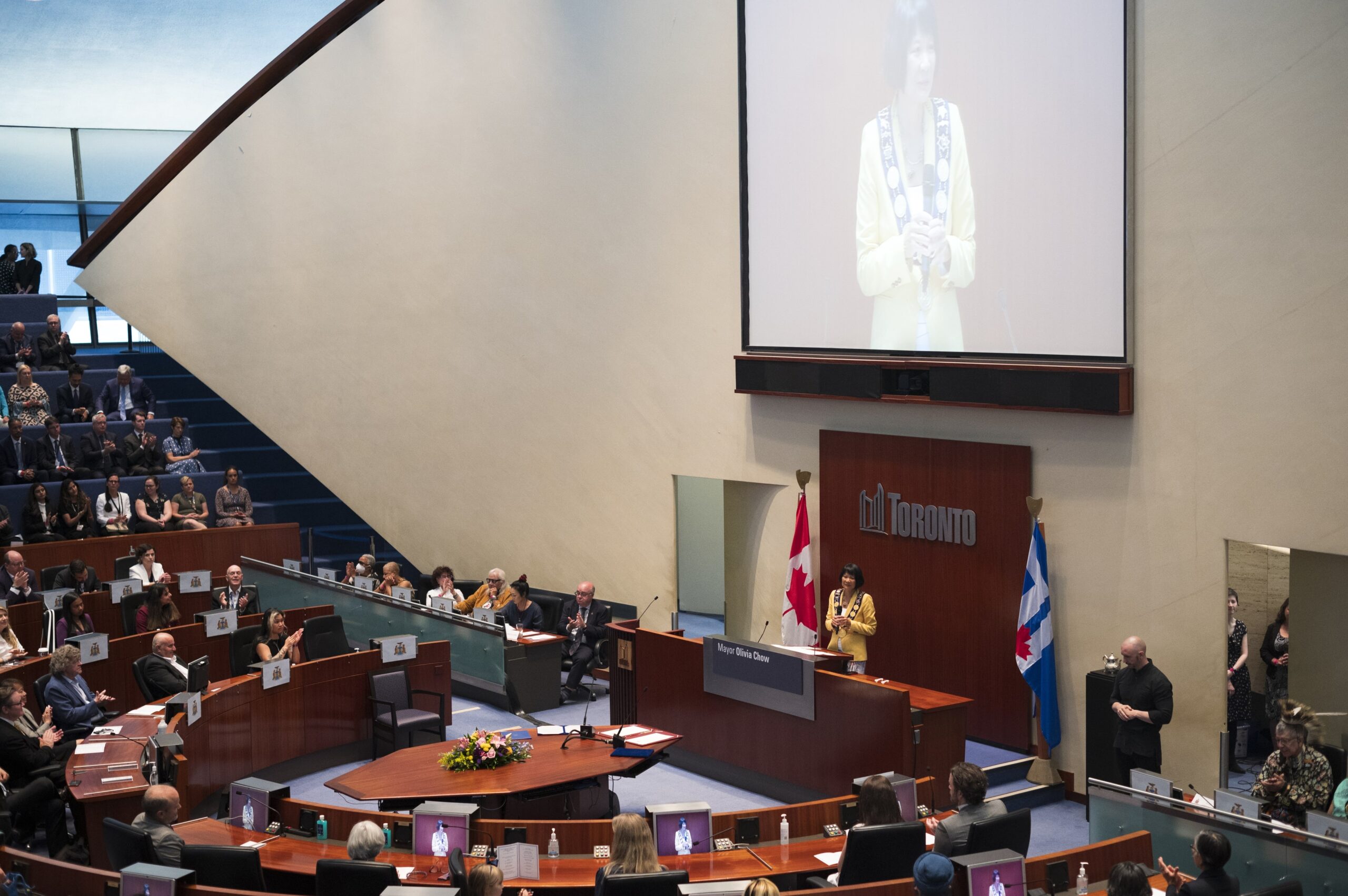
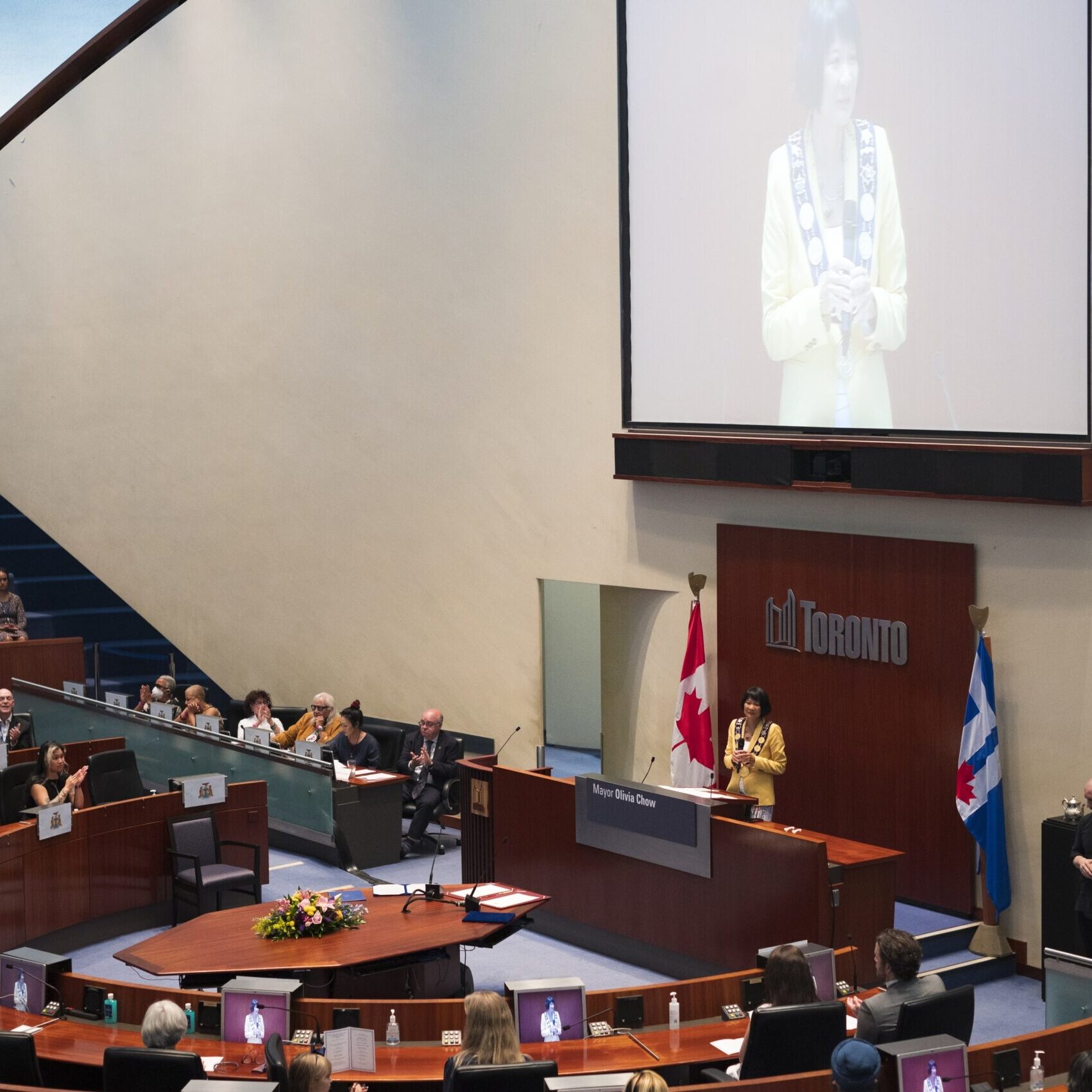
The first 100 days are crucial for a new mayor. In our new column, we’re following Olivia Chow’s first months in office—tracking her progress (or lack thereof) on election promises, who’s supporting and who’s impeding her, and everything else you need to know from City Hall.
“This municipality must join with Ontario Municipalities in a serious campaign for new sources of revenue, which only the province can provide and which only the Province can give us the power to collect…If the City of Toronto got only a fraction of the taxes it pours into the Treasury of the Federal and Provincial Governments each year, we would have no difficulty in financing all civic projects without a year-to-year increase in real estate taxation. I don’t think we can continue to ask homeowners, or business men, to pay ever-rising taxes on property for many services which should not be a charge on real estate.”
—Mayor William Dennison, speaking on the 1966 budget
In politics, the budget is ultimately the only thing that matters. You can make all the promises and vote for all the plans you want, but it’s meaningless if you don’t also support finding a way to pay for them.
Since amalgamation, Toronto’s aspirations have outpaced its ability to afford them. Partly this is due to “downloading”: cities like Toronto have increasingly had to operate and fund things, like housing, that used to be the responsibility of the provincial or federal governments. And Toronto’s biggest single revenue source, the residential property tax, was not designed to fund all the things a modern city has to provide. But this is also partly on us. Toronto city council has consistently chosen to hold residential property tax revenue below inflation while simultaneously voting to expand the services and infrastructure it provides.
For at least the past ten years, City Managers and Chief Financial Officers have issued dire warnings about how the city is kicking the can down the road. The city has managed to maintain at least the appearance of the status quo—but, due to the chronic mounting pressures and the economic shock of the pandemic, we may finally have run out of road.
Last Thursday, Olivia Chow’s brand-new Executive Committee convened for a special meeting to discuss the city’s financial situation, as outlined in this almost 200-page staff report. In a big agenda win, they unanimously passed tax increase proposals Chow had campaigned on, like increasing Municipal Land Transfer Tax (MLTT) rates for luxury homes and raising the newly introduced Vacant Home Tax. It’s not a done deal yet, though; city council as a whole must approve the recommendations at its September 6 meeting.
Raising revenue
Toronto can’t just levy whatever taxes it wants; only some kinds of taxes are permitted in the City of Toronto Act. The first step in strengthening the city’s financial footing is leaning on the tools it already has available, and most of the proposals endorsed by the Executive Committee, like a commercial parking lot levy and raising street parking rates (an urbanist favourite), fall into this category.
The proposed changes to real estate-related taxes will also hopefully clamp down on speculation. In addition to Chow’s promised changes to the MLTT and the Vacant Home Tax, Executive Committee also recommended extra land transfer tax on foreign home buyers and home buyers who already own multiple properties.
The most lucrative options, like a municipal sales tax, require legislative change (or at least cooperation) from the provincial government. Executive Committee also voted to ask provincial and federal governments for a new funding agreement. Both of these are tall orders: Premier Doug Ford is not a fan of taxes, and Toronto has been asking for more funding from the other orders of government for decades.
Of course, before any negotiation or planning starts, everything will have to be approved by city council on September 6. Council has a long history of considering—but often rejecting—new revenue tools. In this 2013 debate about transit funding, city council voted down considering twelve different taxes—congestion pricing, payroll tax, land transfer tax, income tax, a parking levy, toll roads, and more. Several of the consistent “No” voters—Crisanti, Nunziata, Pasternak, Perruzza, Thompson—are still on Council, and unlikely to be any friendlier to new taxes today. In 2016, council also voted against a graduated residential property tax scheme similar to what Chow has proposed. (There was also one of many unsuccessful attempts to bring back the vehicle registration tax cancelled in 2010.) Likewise, implementing a stormwater charge to fund water infrastructure was brought up in 2015 but, as of 2021, is still a hypothetical.
Why not hike residential property taxes?
One tax conspicuous by its absence: Toronto’s single largest source of revenue, property taxes. Specifically, residential property taxes. Toronto’s are consistently among the lowest in Ontario by any measure. According to 2022 data compiled by Zoocasa, among 35 major Ontario cities, Toronto homeowners pay the lowest tax rate and—even given high home values—among the lowest absolute amounts. The average-priced Toronto home pays $6907.64—lower than anywhere except Sault Ste. Marie ($5197.19) and Thunder Bay ($5197.19). In Mississauga, the average home pays $8192.47; Brampton, $9,839.81; and Whitby, $11,368.75.
So why not raise them to be in line with regional rates? The main reason is that it’s politically very unpopular. Lastman, Ford, and Tory all considered keeping property taxes low part of their mandates, and tried keeping property taxes below inflation. During the mayoral by-election, we saw candidates like Mark Saunders and Brad Bradford raising the prospect of double-digit property tax hikes to attack Chow. If Toronto residential property taxes were raised to be in line with surrounding cities’, it would bring in an extra $490-580 million every year. But that would mean a 10-12 percent hike—a political no-go, although as staff note it could be phased in over a few years.
Now, property taxes are not a panacea. They don’t work the way you think they do. They aren’t directly based on property values; they are based on how a house’s value has changed compared to the city average. A house’s property taxes only go up if its assessed value has increased more than assessed values have increased on average citywide. Likewise, a house’s property tax can go down even if its assessed value has increased, as long as it has increased less than average. So property taxes don’t actually reflect economic activity the way the MLTT, income taxes, or sales taxes do. This makes them less than ideal on principle.
However, they are one of the city’s most effective revenue tools, and for other orders of government, political unpopularity does not look like a good reason to keep them low. As the staff report dryly notes: “It is also likely that the provincial and federal governments will expect the City to optimize its existing revenue tools to address its fiscal pressures before they consider requests for additional authority for new tools, increased funding or service reallocations.”
In other words, as long as the city’s tax rates are so far below comparable cities’, crying poor just sounds like “We’ve tried (almost) nothing and we’re all out of ideas!”
Sign up for our free newsletter to get "The First 100 Days" delivered directly to your inbox.
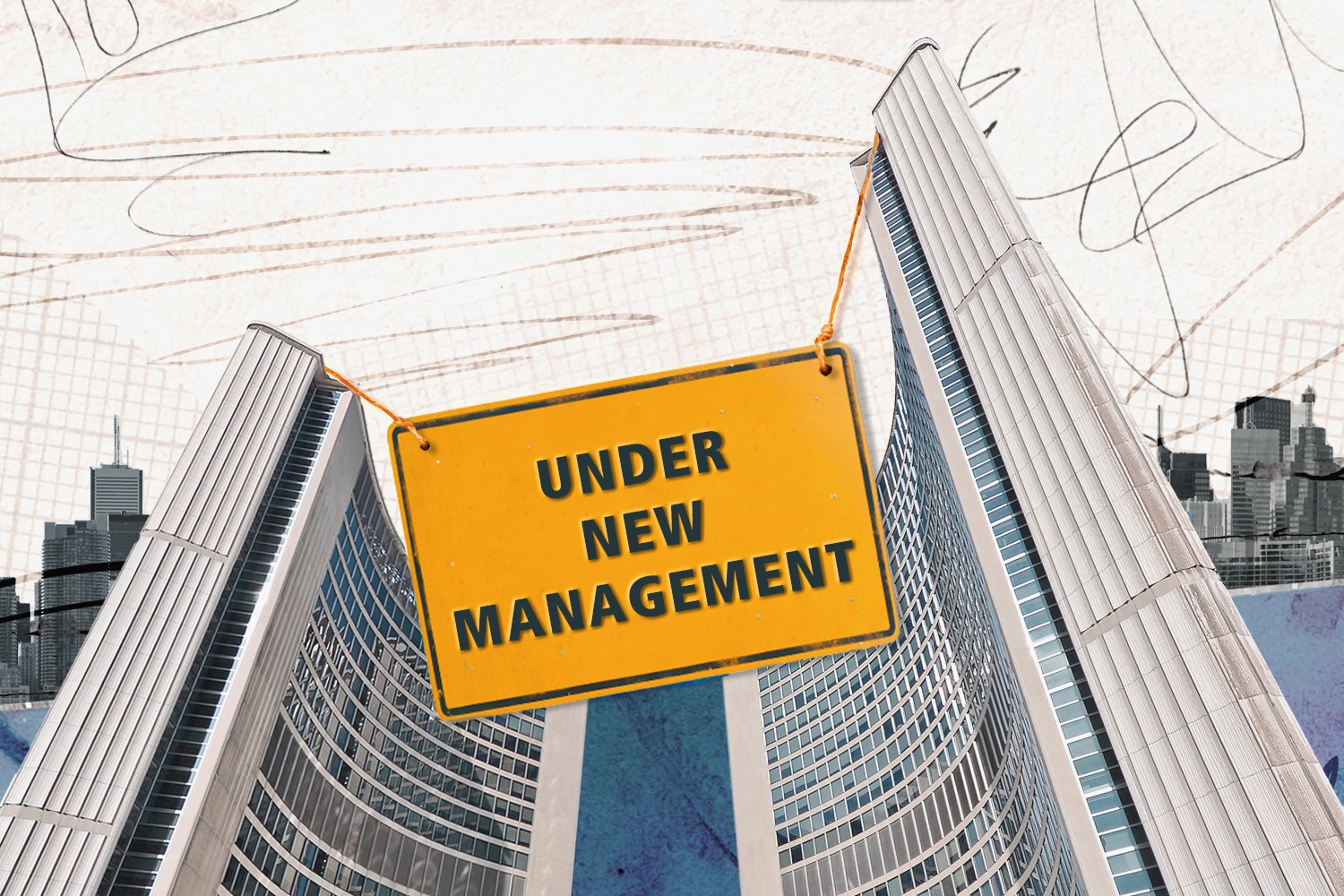
Cutting back
While it’s not necessarily as lucrative as new taxes, the city can also save money by cutting back existing spending. We’ve just seen the fruits of that, as savings from Eglinton LRT delays have allowed the TTC to increase bus service closer to pre-pandemic levels. Options mulled in the Executive Committee meeting include removing development charge exemptions in order to recoup more revenue from new buildings, and re-evaluating the city’s Imagination, Manufacturing, Innovation & Technology (IMIT) program, which gives hefty corporate subsidies.
The city can also try to play hardball with the provincial and federal governments—telling them, in essence: “If you won’t give us more money, we’re cutting back spending on essential services to what we legally have to provide.” For example, they could pause transit development and cancel new long-term care home spaces. (Toronto operates 9 LTC homes, but legally only has to operate one.)
It’s a risky ploy which is likely to backfire for several reasons. First, this scenario is exactly what council’s conservatives—including now-premier Doug Ford—have been pushing for for years. The most high-profile example is the 2011 KPMG Core Services Review during Rob Ford’s mayoralty, which resulted in a legendary all-night Executive Committee meeting in which hundreds of irate residents came to speak. Councillor Giorgio Mammoliti regularly advocated for “uploading” the TTC to the provincial transit agency Metrolinx. More recently, Councillor Stephen Holyday has been a persistent proponent of the city divesting from “downloaded” federal and provincial services.
Second, this is essentially what the city tried when, as we’ve previously covered, it stopped accepting newly arrived asylum seekers into the shelter system. The city’s strategy counts on public opinion turning against the provincial and federal governments, but it is equally likely that people will blame the city—fairly or not—for employing such harsh tactics.
Needless to say, this strategy is at odds with Chow’s stated priorities to increase service levels, build social housing, improve public transit infrastructure, and so on. If she (or city staff) can’t successfully negotiate a new funding model with other levels of government, and if city council as a whole can’t agree to raise enough revenue, Chow’s tenure will look little different from Tory’s. How the upcoming council meeting goes will be a strong indication of what sort of city we are going to get.
As Previously Mentioned
- Several city swimming pools will stay open until Sept. 24, a pertinent reminder of how climate change will affect city services.
- More churches providing ad hoc shelter for asylum seekers are calling for more government aid.
- In this piece on the housing crisis published the same day, Milton mayor Gord Krantz says, “The federal government is the top of the food chain. They downloaded on the province and then the province downloads on municipalities. We’re the end of the food chain.” This is a timely reminder that when city services fail, they are effectively downloading services to individuals and community organizations.
What’s Next
- City council meets next week (Sept. 6). Normally the September meeting is just for routine development-related matters, but this time they’ll be voting on the Executive Committee items as well.
- The Ward 20 (Scarborough Southwest) by-election is scheduled for November 30. The nomination period opens September 7. If you want to throw your hat in the ring, all you need are 25 signatures and $100. More details and information here.
